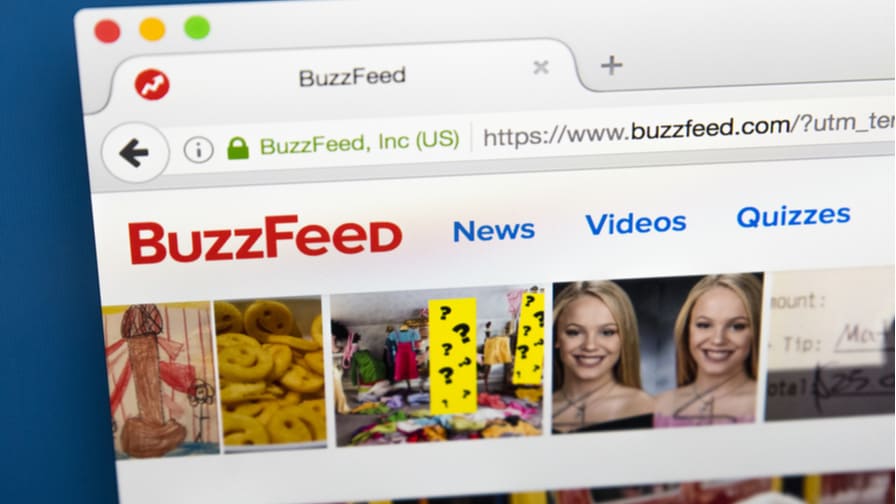Digital publisher Buzzfeed’s projected revenue growth for 2017 is expected to fall short by $70 million due to sudden changes in advertising strategy for its editorial content.
According to a report by The Wall Street Journal, Buzzfeed’s revenue this year is anticipated to rise by 12% to $280 million, falling short of the digital publisher’s intended target of $350 million.
A change in tact?
It’s been noted that the digital publisher had faced some issues with its advertising strategy during recent months.
Having maintained a business model for years built solely around native advertising and sponsored editorial “listicles”, in August this year Buzzfeed introduced banner ads onto its website which were sold using third-party technology on a global basis in the attempt to monetise its operated platforms more effectively.
The media company would allow advertisers to run display ads on its content through the Facebook Audience Network and the Google Doubleclick Ad Exchange which appeared on top of article stories, homepage and dedicated mobile app, which chief executive Jonah Peretti had previously branded “annoying clutter”.
During the time the format was embraced in the bid to make it less reliant on driving traffic to promoted posts. By doing this, Buzzfeed succeeded in driving more traffic and readers to its editorial content, including signature posts and paid video ads. The digital publisher reportedly reached more than 75 million unique users in June.
IPO doubts
At the time of this, Peretti said the adoption of banner ads would help “monetise global audiences who were not yet served native content,” adding that programmatic had helped to improve loading times, mobile experience and ad quality, “opening up another way for us to monetise our huge audience”.
Despite Buzzfeed’s attempts to diversify its ad strategy, the risk of ad blocking software prevented the effectiveness of some of its banner ads. The publisher’s web pages were known to be relatively clean, but due to intrusive ads that would roam across content on the site, consumers have downloaded ad blockers to negate the efforts of its banner ads and in return cutting a potential revenue stream for Buzzfeed.
Buzzfeeds’ strategy was tied ahead of the company’s IPO for 2018 which now looks bleak due to the projected estimates forecast.

